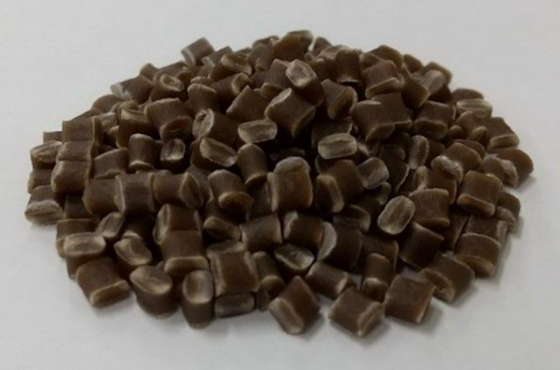
Yamaha to use plants for personal watercraft parts

Yamaha Motor has announced that it will adopt plant-derived cellulose nanofibre (CNF) reinforced resin for marine products as an initiative toward reducing CO2 emissions and the company’s environmental footprint.
The parts developed using this material will be used in engines for personal watercraft and sport boats, and are planned to be installed in certain 2024 models. Yamaha Motor is examining the utilisation of this material not only in marine products but also in motorcycles and a wide range of other products in the future.
Yamaha explains that CNF-reinforced resin is a new high-strength material manufactured by kneading and dispersing CNF, a biomass material made from wood resources, into resins such as polypropylene.
In addition to being over 25 per cent lighter than existing resin materials, Yamaha says it also has excellent material recyclability, leading to a reduction in the amount of plastics used and greenhouse gas emissions, mainly CO2.
In developing the material, Yamaha Motor has reached a collaborative agreement with Nippon Paper Industries (headquartered in Chiyoda-ku, Tokyo).
 Cellulose nanofiber reinforced resin
Cellulose nanofiber reinforced resinYamaha Motor Europe signed an exclusive new five-year outboard supply agreement with Italian shipyard Salpa Nautica in late September.
Wessex Resins recently reported sustained interest in the latest Pro-Set bio-based epoxies (tailored specifically for composite manufacturers). David Johnson, sales director, terms the Pro-Set bio-based range as “an inventory of high-performance resins and adhesives”. They’re all based on a product that was previously in a 100 per cent oil-based form.
At heart, he says, Pro-Set bio-based epoxies are a laminating, infusion and adhesive-based epoxy systems containing with between 24-32 per cent bio content in the resin component. The bio content comes from a waste stream that would otherwise go into landfill. But, he says: “Boatbuilding and yacht engineering is very innovative. But, while it’s open to innovation, the whole bio scene is a slow-burn realisation. People have to trust in products, and that happens over time.”
